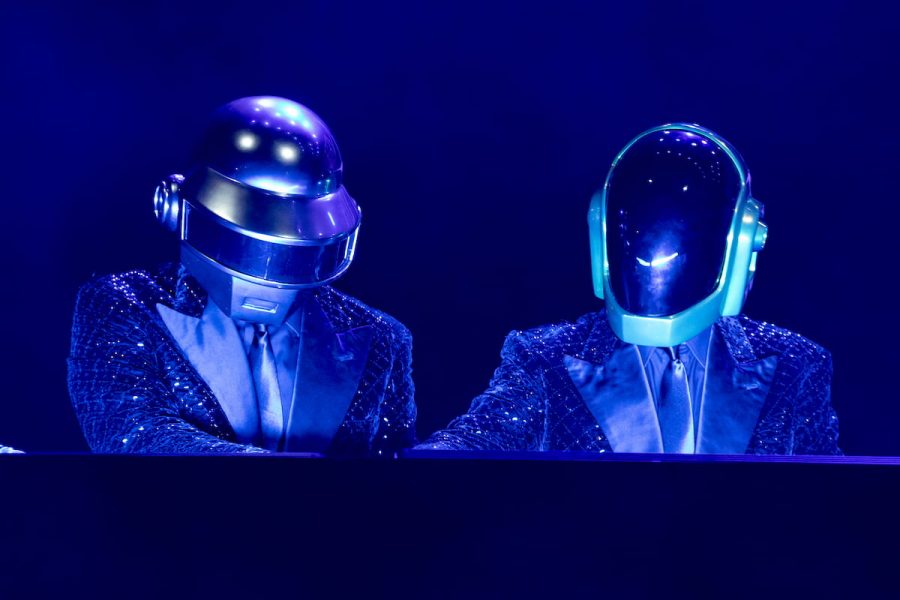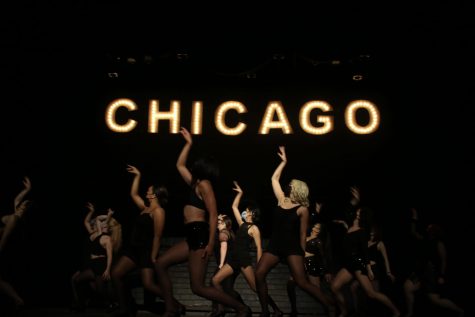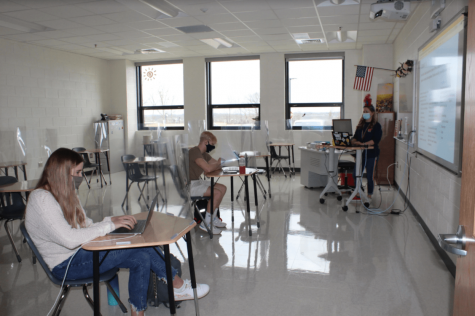Robot After All
French musical group Daft Punk during the concert for the 20 years of Lo Zoo di 105 at the Hippodrome. Milan (Italy), July 8th, 2019 (Photo by Marco Piraccini/Archivio Marco Piraccini/Mondadori via Getty Images)
One of the most influential groups in popular music history, Daft Punk, announced its break-up on February 22, in a video released to their YouTube channel. Although they have not released an album in nearly eight years, it still came as a shock to many fans. Many other fans and musicians responded with sadness, acknowledging the group’s impact on them.
For most of their career, Daft Punk was the most critically and commercially acclaimed electronic music group in the world. Their fusion of French house music with other styles such as 1970s and ‘80s-era funk and synth-pop reinvented electronica. Their music brought a new joy and unpredictability to house music, surpassed only by the music that emerged from the genre’s beginnings in Chicago in the 1980s.
Daft Punk was formed in 1993 in Paris by Guy-Manuel de Homem-Christo and Thomas Bangalter. Their first single, a limited release called “The New Wave” was released the next year. They did not record again for an entire year, reconvening to the studio in May 1995 to record “Da Funk.” The song was ignored by the public at the time. However, it would later become a worldwide hit when re-released in December 1996, reaching the top 10 in national charts throughout Europe.
Daft Punk’s first studio album, “Homework,” was released on Jan. 20, 1997. The album would see commercial success and positive reviews from critics. In an article published in 1999, The Village Voice credited the album for reviving house music. The second single released from the album, “Around The World,” was the album’s biggest hit and topped dance song charts in three countries.
Their second studio album, as well as what would become their most critically acclaimed album years later, “Discovery,” came out on March 12, 2001. “Discovery” showed the growing influence of genres like disco, garage house and ambient music on them. Like its predecessor, “Discovery” came out to immediate critical and commercial success. The lead single, “One More Time,” a collaboration with Romanthony, who was one of their biggest musical influences, became their biggest worldwide hit to date, topping the charts in Canada, France and Portugal. It also became their second song, after “Around The World” to chart on the Billboard Hot 100.
Today, many consider “Discovery” to be one of the most significant albums in the history of popular music. In 2009, Pitchfork named it the third-best album of the decade. Six years later, in 2015, Spin named the album the fourth-best of the last thirty years. In 2013 and 2020, the album was the highest-ranked album of theirs to be included in NME’s and Rolling Stone’s lists of their 500 Greatest Albums Of All Time, appearing at No. 76 and No. 236, respectively. On both lists, the album was the highest-ranked by an electronic music group.
Around the release of “Discovery,” the members began wearing robotic helmets and gloves for concerts and promotional appearances. This look would later define them. Bangalter later said that they used this look to separate their personal lives from their music. They would use this look for the rest of their career.
In 2005, their third studio album, “Human After All,” was released. It was the only studio album they released in their career that was considered a flop by many. Aside from underselling in many countries where their music sold well, the album received a bad reaction in the music press. After the release of the album, they would not make another one in the studio until 2013. However, a year after “Human After All” was released, they would embark on their last and most famous tour, the Alive 2006/2007 World Tour. The Guardian later credited this tour for bringing dance music to a bigger audience in the United States and was later made into a live album, “Alive 2007,” which won a Grammy Award for Best Electronic/Dance album in 2009.
In 2013, their last and most commercially successful album, “Random Access Memories” was released. Though the group already held a position of prestige by the time it came out, the album catapulted them into being one of the best best-selling music groups in the world. The album became, at the time, the most streamed album in Spotify’s history and topped charts in eighteen countries in Europe and North America. The album’s lead single, “Get Lucky,” a collaboration with Pharrell Williams and Nile Rodgers, became one of the best-selling singles of all time, topping charts in over twenty countries and reaching No. 2 on the Billboard Hot 100 in the U.S. over the summer.
“Random Access Memories” also received immediate critical acclaim that had surpassed their previous albums. The album was named among the year’s best by publications across the world, including being named the third-best album of 2013 in The Village Voice’s annual Pazz & Jop critics’ poll. At the 2014 Grammy Awards, “Random Access Memories” took home the Album Of The Year award, and “Get Lucky” won Record Of The Year.
Daft Punk also did notable production work for other artists throughout their history. In 2013, they produced four songs on Kanye West’s acclaimed album “Yeezus.” In 2016, they produced two songs on The Weeknd’s album “Starboy,” the title track, and “I Feel It Coming,” both of which were released as singles and became commercially successful.
“I Feel It Coming” was the last song Daft Punk would ever appear in. Daft Punk is not the first important music group to break up. They will not be the last. However, their impact on popular music was shown throughout their career and will continue to show even years later.











